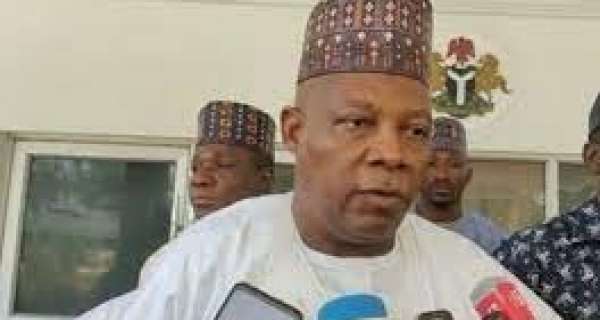This year’s rainy season and other weather conditions are likely to cause major disruptions in the country which will affect citizens’ health and infrastructure in key sectors.
According to a technical committee of experts set up by the Federal Government, this is due to the severity of the weather and lack of preparedness by relevant agencies.
Roads, bridges and other key infrastructure as well as communities may be washed away, while disease epidemics may break out in many communities.
The aviation sector is not left out as airplanes may skid off runways and cause major catastrophes.
It also warned that severe flooding would likely wash away farms and lead to the destruction of livestock, thus causing severe hunger in the land. In addition, it predicted that severe weather might worsen malaria, cholera and other water-borne diseases, and escalate depression among Nigerians.
The warning was given in the 2023 climate-related disaster preparedness and mitigation strategies. The document indicated that the agency developed the early warning messages in collaboration with several stakeholders, including representatives of about 22 ministries, departments and agencies.
The document showed that the 22-member technical committee signed the ‘Analysis of 2023 seasonal climate prediction’.
The agencies include NEMA, the Nigeria Hydrological Service Agency, Nigeria Meteorological Agency, National Space Research and Development Agency, National Inland Waterways Authority, Office of the Surveyor-General of the Federation and the National Orientation Agency.
The list also includes the Federal Ministry of Health, Federal Ministry of Environment, Federal Ministry of Education, Federal Ministry of Agriculture and Rural Development, Federal Ministry of Transportation and National Oil Spill Detection and Response Agency.
Others are the Nigeria Security and Civil Defence Corps, Nigeria Integrated Water Resources Management, River Basin Development Authority, Jiga Dam, Nigerian Red Cross Society, Federal Fire Service, Centre for Disaster Risk Management, University of Nigeria, Nsukka; Federal Capital Territory Emergency Management Agency; Erin Dam, Osun State, and the Upper Niger River Basin Development Authority, Minna, Niger State.
According to the document, following the public presentation of the 2023 Seasonal Climate Prediction by NiMet on January 24 and the Annual Flood Outlook by the NIHSA on February 17, 2023, NEMA convened a technical meeting of experts from relevant stakeholder-organisations who deliberated for two days and came up with the strategy as an early warning document based on thematic sectors.
“The strategy is to aid responsible organisations carry out preparedness and mitigation actions to safeguard lives, livelihoods, properties and the environment against hazards related to climate variability within Nigeria in 2023,” it stated.
In the agricultural sector, the panel said the onset of the planting season was likely to range from early to normal in most parts of the country, while later than normal onset dates were expected over parts of the northern states.
The document stated, “Below normal rainfall is predicted over some places in the extreme North. This will result in water stress. Day time temperature is likely to be above normal all over the country. This will have an adverse impact on domestic animals leading to losses. High pests and diseases will also lead to losses of agricultural production.
“High rainfall, relative humidity, winds, temperature and sunshine affect aquaculture. All stakeholders, including development partners and NGOs, should embark on awareness and sensitisation for climate smart agriculture.”
It also advised NEMA and state emergency management agencies and development partners to embark on early production of flood vulnerability mapping between January and March, while the Nigerian Incentive-Based Risk sharing system for Agricultural Lending and Bank of Agriculture should make available insurance covers and credit facilities from January to December.
It added that the FMARD should embark on early construction of earthen ponds before the onset of rainfall, with the period of action set for between January and May, while the ADP should sensitise farmers to the frequent and systematic change or pond water, poultry pen ventilation and birds’ hydration all year round.
In the water resources sector, the experts predicted an early start of rain from March in the coastal areas to July in the hinterland and this might result in flash floods due to some social/environmental factors.
The document stated, “Rainfall amount is predicted to be average to above average in most parts of the country. This also may result in over-flooding and improper termination of drainage systems, cause damages to critical infrastructure and leave communities inaccessible.
“Damages of water infrastructure, reduction in water quality and nutrient, cause erosion and flooding.”
It advised relevant agencies to engage in efficient sensitisation of communities around the coastal areas; de-silting of major rivers and dams, river training and establishment of standards for drainage system termination.
According to the report, weather parameters and atmospheric conditions will induce pathogens and disease vectors to grow, multiply and spread faster. This will encourage transmission of malaria and cholera, heat stress, heat cramps exhaustion, heatstroke and hyperthermia.
High air temperature and relative humidity will directly affect personal comfort of humans. This may increase drowning, injury, malnutrition, depression and mental disorders, the report added.
“Flooding will affect health sectors, resulting in pollution, spread of water-borne diseases, displacement of people and limited access to healthcare,” it stated.
The prediction for the transport sector is grimmer as the document states that the interplay of weather elements (rainfall, dust haze, fog and mist, extreme temperature, etc) will affect most means of transportation.
The report stated, “The prospect of normal to above normal rainfall amounts and high temperatures will affect road transport. Heavy rains may result in flooding, cause damages to roads and bridges, other critical infrastructure and leave communities inaccessible. Also, travel time may be longer.
“High temperatures will affect motor vehicle tyres during hot seasons.
“The projected rainfall pattern implies heavy rains, convective rains with associated strong winds, aquaplaning and high temperatures. These will increase the prospects of wind shear and air turbulence resulting in disruptions, skidding of planes off the runways, flight delays and flight cancellations.
“Weather elements will result in rail track buckling, flooding and washout as well as cooling in train stations.
“There may be an increase in siltation and contamination of waterways. Silt and debris may impede smooth navigation by boats and other vessels.”
The team of experts urged the federal and state fire services, NEMA, Federal Road Safety Corps, NSCDC, Federal Ministry of Health, Nigerian Red Cross and SEMAS to preposition ambulances along identified flash points, while the Federal Roads Maintenance Agency, Federal Ministry of Works and Housing, and other stakeholders should continuously maintain road networks and infrastructure, and in the long run re-construct and elevate flooded roads.
It added, “The Federal Ministry of Transportation, state governments, NIWA and NPA should embark on early dredging and maintenance of coastal and inland waterways navigations.
“The Federal Ministry of Water Resources, Federal Ministry of Transportation and NIWA should ensure they monitor discharge and regulations of dams and create detention dams.”
For the power generation and distribution sector, the report said the predicted normal rainfall amounts over most parts of the country would sustain hydro-power generation, which would present the opportunity to possibly meet up with high demands for power during the hot season for cooling systems.
It added that the Federal Ministry of Science, Technology and Innovation, Federal Ministry of Power, Rural Electrification Agency and Standards Organisation of Nigeria should canvas alternative power generation sources to complement the hydropower sources in order to cope with the high demand for power through continuous investment in renewable energy systems.
It stated, “The FMoP, NERC, TCN, Discos and Gencos should provide higher capacity distribution substations to compensate for eventual breakdown of existing transformers due to high load and demand, especially in high density areas.
“The agencies should direct electricity distribution companies to ensure that cables, electric poles and other installations used in transmitting power to users are properly installed so as to withstand strong winds, heavy rains and other severe weather phenomena.
“The FMOW, federal and state town planning authorities, Nigerian Institute of Town Planners, Nigerian Society of Engineers and the Council for the Regulation of Engineering in Nigeria should ensure that offices, buildings and households are well ventilated to allow effective and efficient or circulation during the hot seasons, thereby reducing demand for power for air-conditioning.
“The NIWA, FMARD, FMWR, river basin authorities and state governments should regularly monitor and de-silt rivers and hydropower dams to maximise water storage, prevent dam collapse and minimise risk of water shortage.”
In the telecommunication sector, it stated that electromagnetic waves propagation would be affected by weather conditions and this would affect signal quality and cause deterioration as well as distortion of cell phone reception.
“Masts and antennae are susceptible to storms; they may collapse, causing serious economic losses,” it added.
While calling for the relocation of communities perennially affected by foods to safer places, the panel said there was a need to improve or strengthen diplomatic relations through the Federal Ministry of Foreign Affairs with neighbouring countries like Niger, Chad and Cameroon with respect to release of water from their dams.
Health experts comment
A professor of Public Health at the University of Ilorin and former National Chairman, Association of Public Health Physicians of Nigeria, Tanimola Akande, said all the three tiers of government must play their roles to mitigate the consequences of extreme weather conditions.
He said, “The government of Nigeria is part of the global agreement on mitigating the challenges of climate change. So, the government needs to do the needful by creating awareness and putting in place various measures against the consequences. The various organs of the government should also improve on their interventions.
“The government has said we have ecological funds, so they should release the funds to do the needful.”




































0 Comments